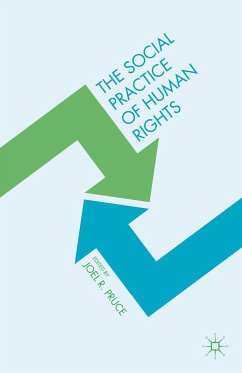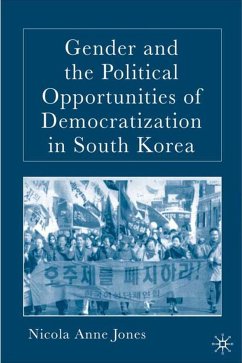
Gender and Power
Towards Equality and Democratic Governance
Herausgegeben: Vianello, Mino; Hawkesworth, Mary
Versandkostenfrei!
Versandfertig in 6-10 Tagen
76,99 €
inkl. MwSt.

PAYBACK Punkte
38 °P sammeln!
Despite explicit commitments to gender equality, women experience complex modes of disadvantage and discrimination in all nations of the world. Offering sophisticated insights into the persistence of gendered differences in opportunities, roles, power, and rights in societies across the globe, this volume investigates factors that both enable and constrain women's advancement. From intimate relations within families, to social norms, relations, ideologies, and structures of power, to political institutions, electoral systems, and public policies, the chapters analyze possibilities for and obst...
Despite explicit commitments to gender equality, women experience complex modes of disadvantage and discrimination in all nations of the world. Offering sophisticated insights into the persistence of gendered differences in opportunities, roles, power, and rights in societies across the globe, this volume investigates factors that both enable and constrain women's advancement. From intimate relations within families, to social norms, relations, ideologies, and structures of power, to political institutions, electoral systems, and public policies, the chapters analyze possibilities for and obstacles to inclusive democratic practices and identify interventions essential to enable democratic values to take root. Contributors from Africa, Asia, Europe, Latin America, and the USA provide detailed assessments of the social, economic, and political condition of women, their mobilizations to produce transform gendered power and authority in diverse nations, and their efforts to enhance thequality of their lives, their communities, and democratic governance.














